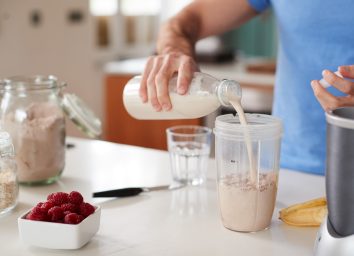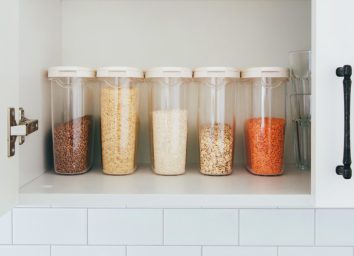6 Best Veggie Hacks for Weight Loss, From a Dietitian
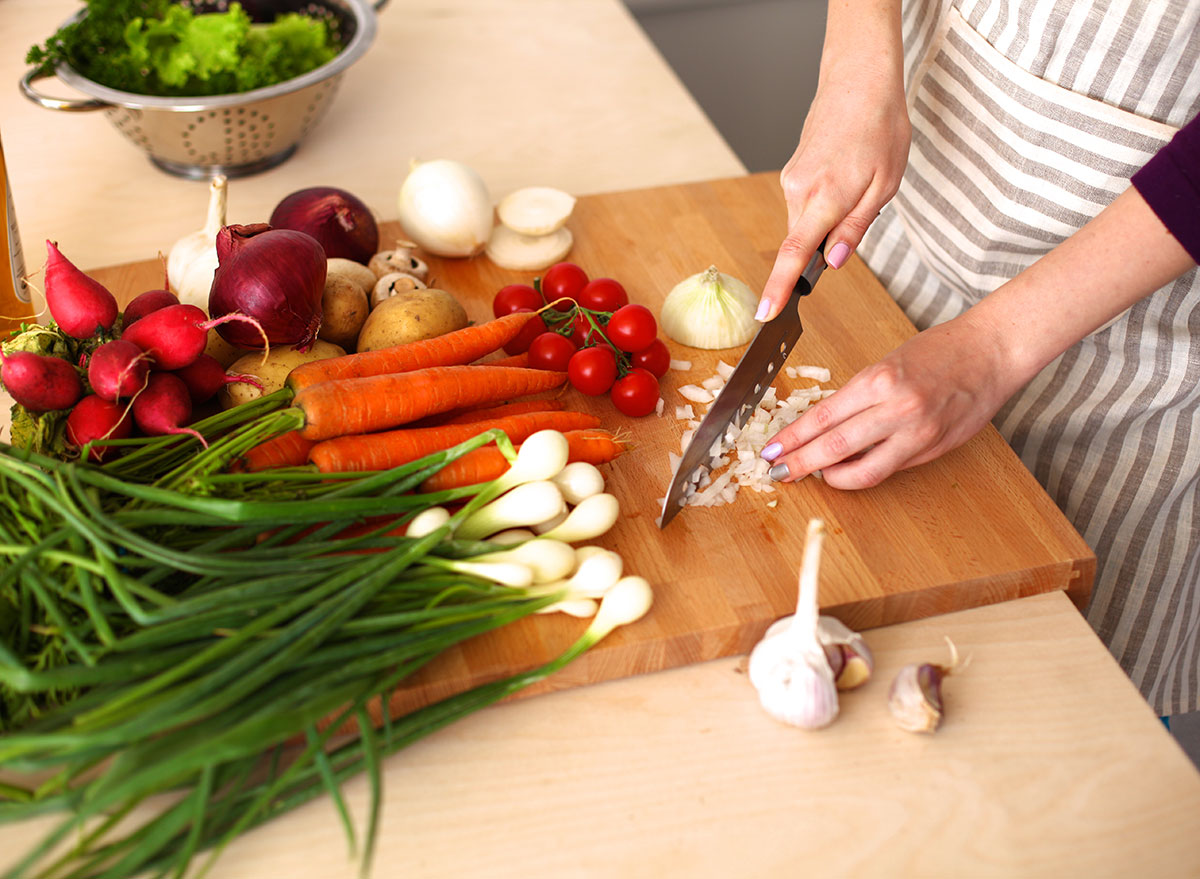
It's a simple theory of weight loss: Eat more vegetables and you'll drop more pounds. That's because filling up on veggies will crowd out more calorie-dense foods, especially high-sugar processed ones that tend to increase hunger.
Many studies have shown that increasing intake of fresh produce can have a significant impact on weight loss. For example, a long-term study by researchers at the Harvard T.H. Chan School of Public Health demonstrated that people who ate more lower-carbohydrate, high fiber fruits, and vegetables like string beans, leafy greens, apples, and pears lost weight while people who ate more starchy vegetables like peas and potatoes gained weight. Another, an analysis of 22 studies in the journal Nutrition Reviews found that an increase of 14 grams of dietary fiber a day from fruits and vegetables was associated with an average weight loss of 4.2 pounds over four months.
Are you eating enough plants? (See: 9 Warning Signs You're Not Eating Enough Vegetables.) Only one in 10 Americans do, according to the Centers for Disease Control and Prevention (CDC). The USDA recommends that adults consume a minimum of 2 to 3 cups of vegetables per day to get vital nutrients like hunger-busting dietary fiber, potassium, and many vitamins and minerals that keep your body nourished, fortified, and energized.
Despite the obvious benefits of these whole foods, a lot of people choose processed carbs over fresh vegetables because they don't particularly like the taste of them. Registered dietitian nutritionist Ilana Muhlstein, MS, RDN, tells her veggie-shunning clients that learning to love produce is just a matter of practice. Muhlstein dropped 100 pounds by changing her eating habits and wrote about it in her new book You Can Drop It! Here, Muhlstein offers some useful tips to help you open your palate (and your plate) to more vegetables. Read on, and for more on how to eat healthy, you won't want to miss these 21 Best Healthy Cooking Hacks of All Time.
Cut out the cook time, and eat veggies raw.
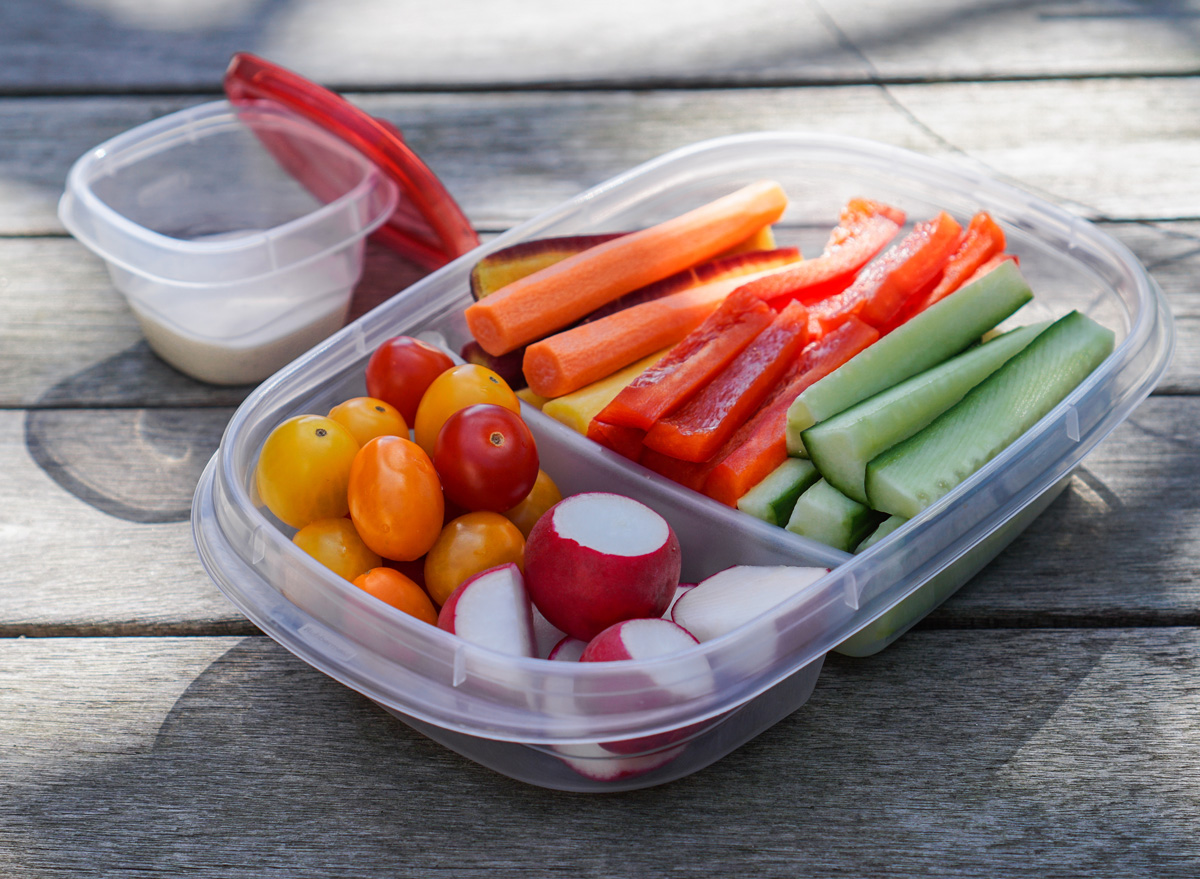
"Try eating crunchy, raw, bite-sized vegetables as a snack and opt out of processed snacks like pretzels or chips," says Muhlstein. Vegetables are easy to keep in the fridge to grab quickly while you're working or while you're waiting for your next meal. Carrot sticks, broccoli florets, or cherry tomatoes will help keep you satisfied while also moving you toward your daily recommended servings without much prep work or effort.
Opt for inexpensive veggies, like frozen versions.
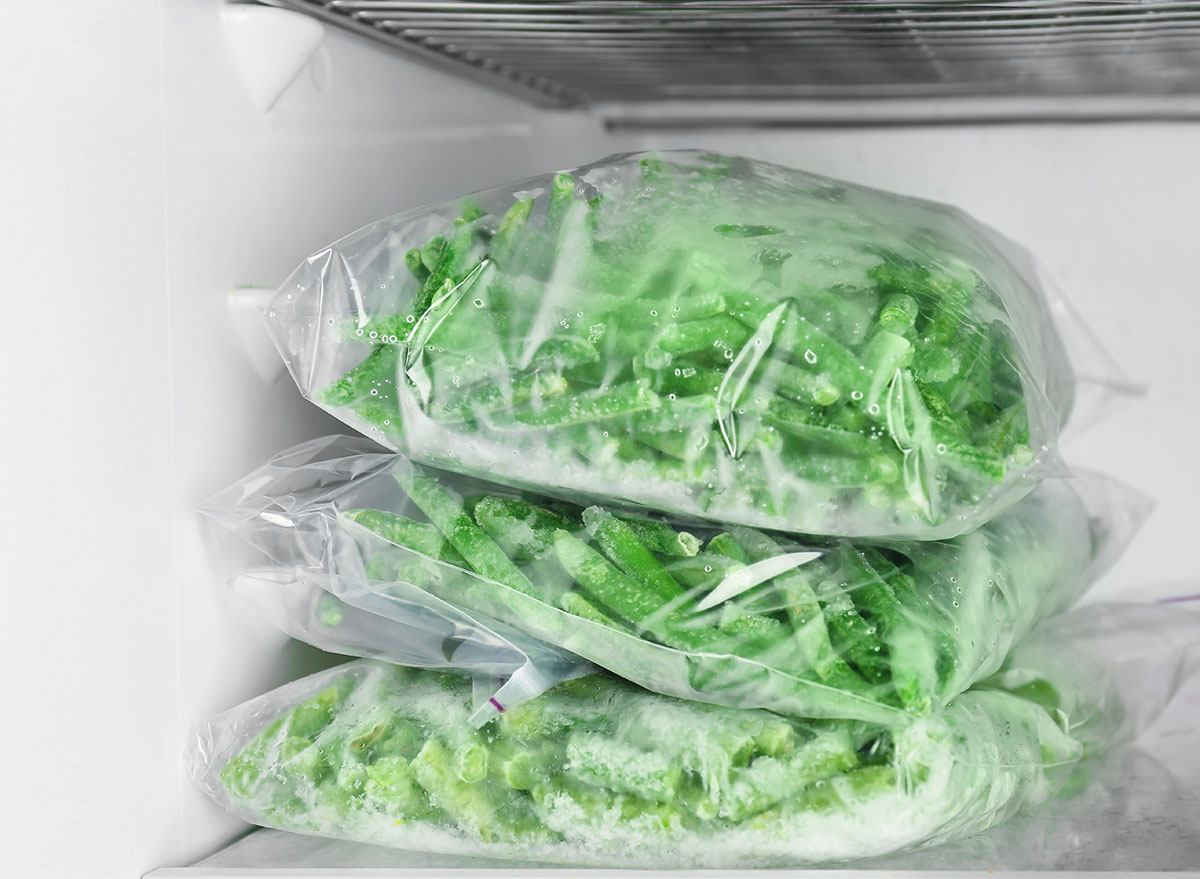
You can help reduce costs by buying frozen vegetables in bulk or finding veggies on sale. For example, cabbage is a very budget-friendly vegetable because you can usually find it year 'round, it lasts a long time in your fridge, and is very inexpensive and supremely versatile. If you're looking for ease of preparation, frozen or pre-cut vegetables are the way to go. Good news: frozen vegetables are just as healthy as fresh.
Know that it takes time to adjust to your fiber intake.
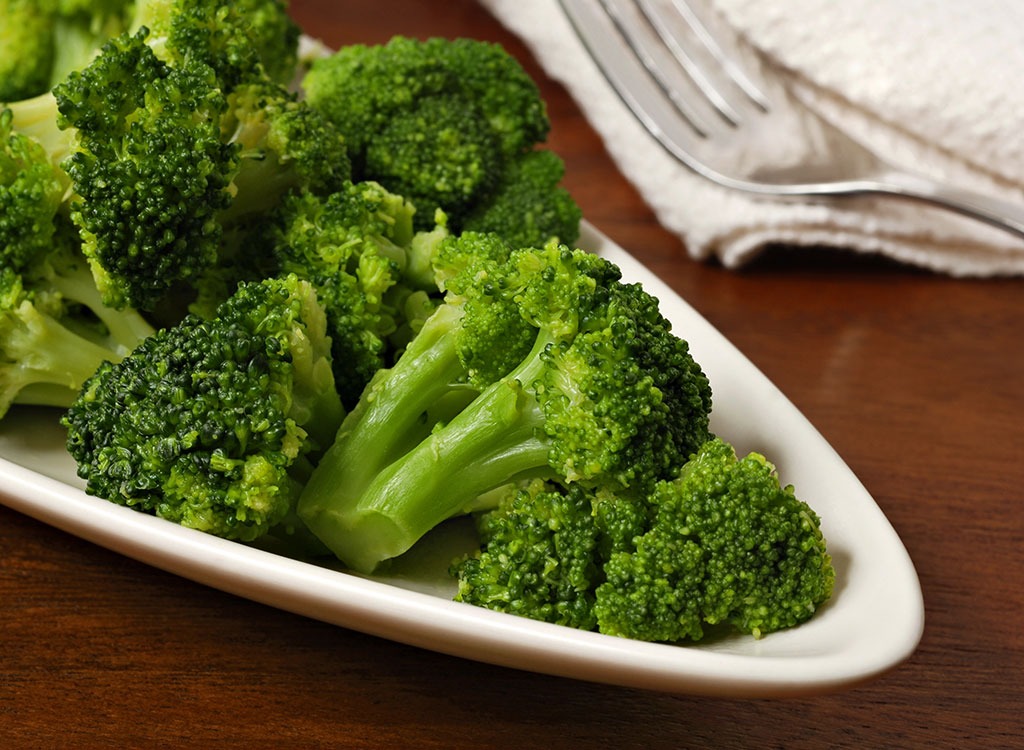
Keep in mind that the gassy bubbles that come from certain foods are due to healthy bacteria. Those bacteria help to break down the vegetable fibers so that your body can better absorb nutrients, but as they ferment, they also tend to emit CO2. So, when you're eating a lot of veggies and have gas, it's a good sign of a working digestive tract and a healthy gut. As your gut gets used to breaking down dietary fibers found in vegetables, it will be more efficient in regulating gasses within the body. Just give it time. Everyone can benefit from increasing their fiber intake, but if you're curious whether you need to be focusing more on your gut health, don't miss these 12 Warning Signs You Have Poor Gut Health.
Your taste buds will adjust to enjoying veggies.
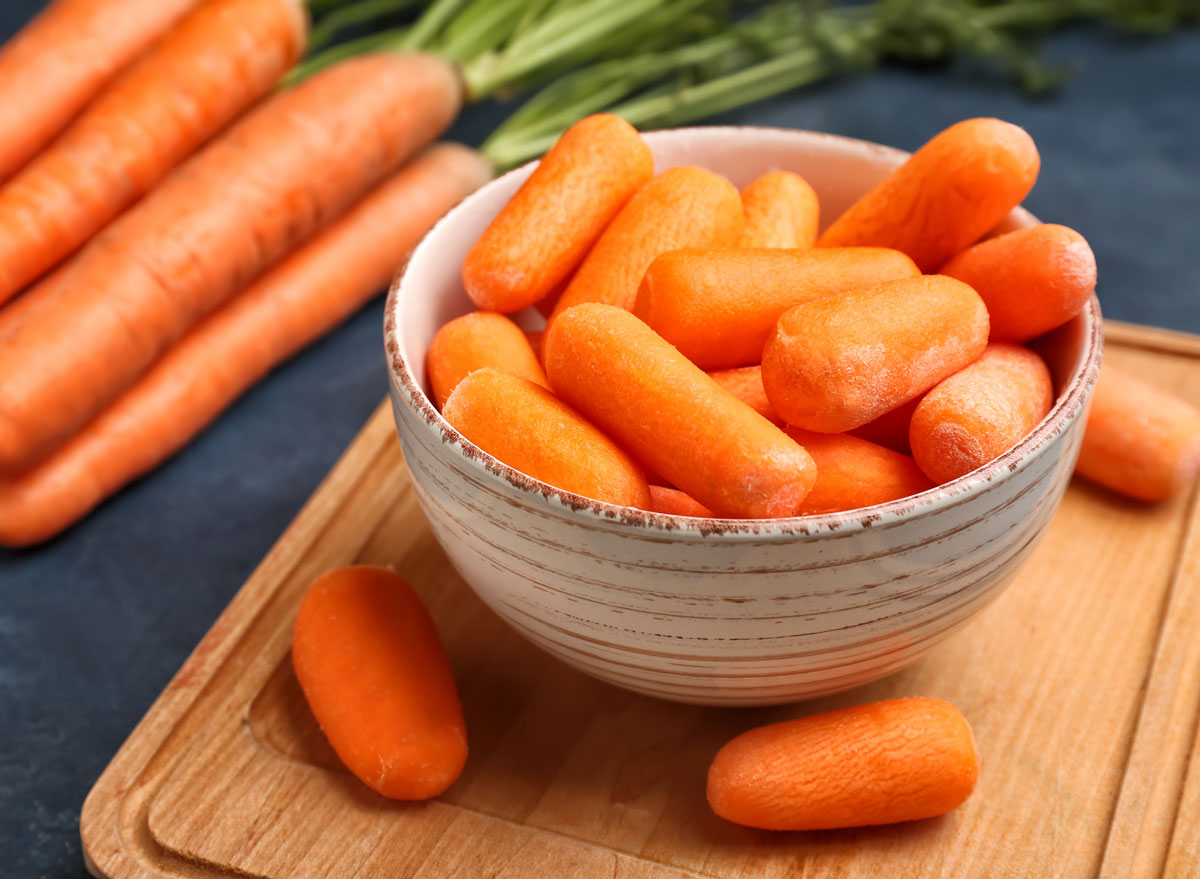
It may sound unbelievable, but it's true: you can actually change your tastebuds and food preferences—and in a relatively short amount of time. One small study found that when participants cut out added sugars for two weeks, 86.6% of participants stopped craving sugar after 6 days. Plus, 95% of them found that sweet foods and drinks tasted sweeter or too sweet, which discourages them from eating them as much. A separate investigation found that reducing sodium intake shifted participants' preference towards less salty foods—in as little as 3 months.
As you begin to eat more veggies (which can displace your intake of high-sodium and high-sugar foods), your palate will change; you may begin to actually crave them the same way you crave the types of foods you already eat! Start with two or three veggies that you enjoy. As you drop pounds, add more variety because the more veggie-based dishes you eat and grow accustomed to liking, the more confident you will become that you will be able to sustain your weight loss.
Use flavor-packed seasonings to liven them up.
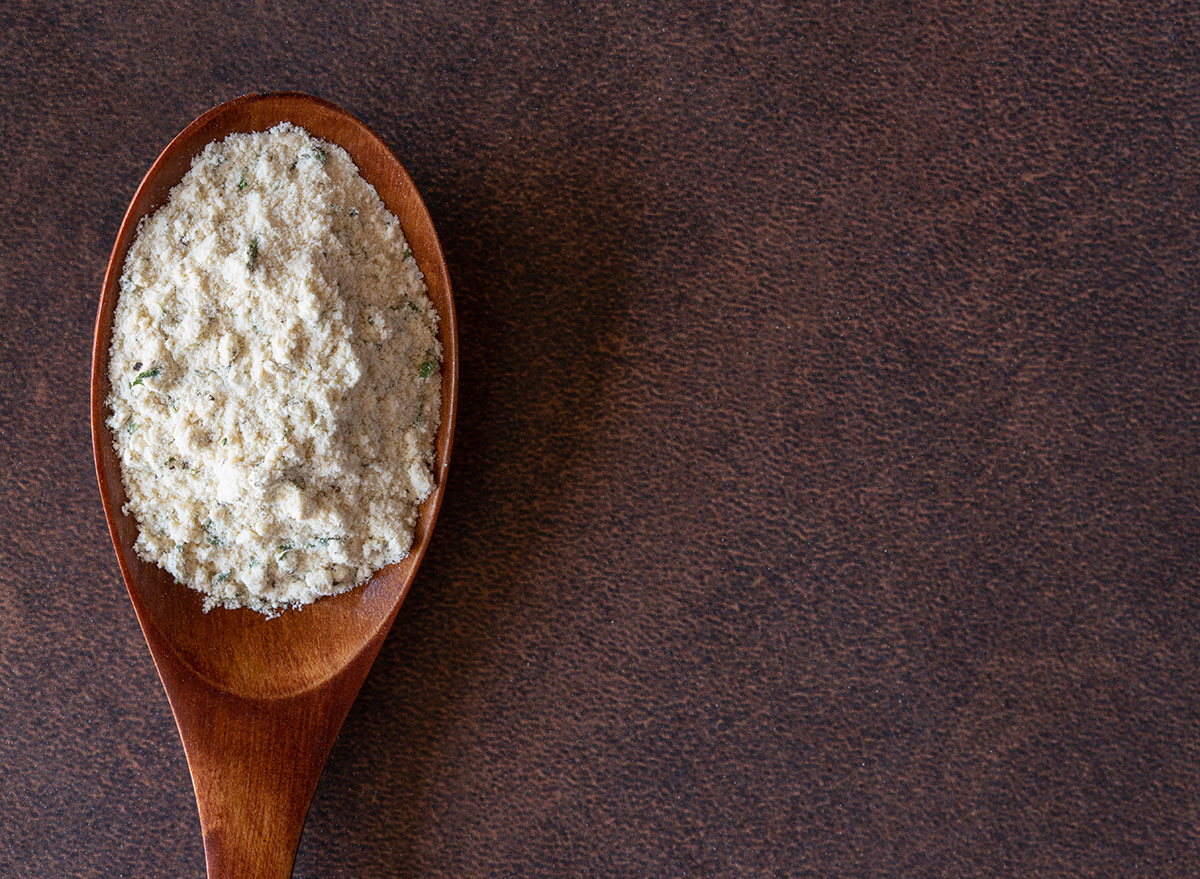
Don't be afraid to season your veggies and even dip them in dressing to make them appeal more to your tastes. A little ranch on some carrots or bell pepper slices never hurt anyone, and while diet culture will tell you to steer clear of dressing, at the end of the day you're still eating more vegetables, right? Rather than eating them raw, you could always try preparing them in different ways. "One of my clients microwaves green beans from the bag then sautés them in a pan with slivered almonds and Everything but The Bagel seasoning. She feasts on them and is still losing pounds. As I always say, nobody is gaining weight eating vegetables," says Muhlstein.
Know the value of your veggies.
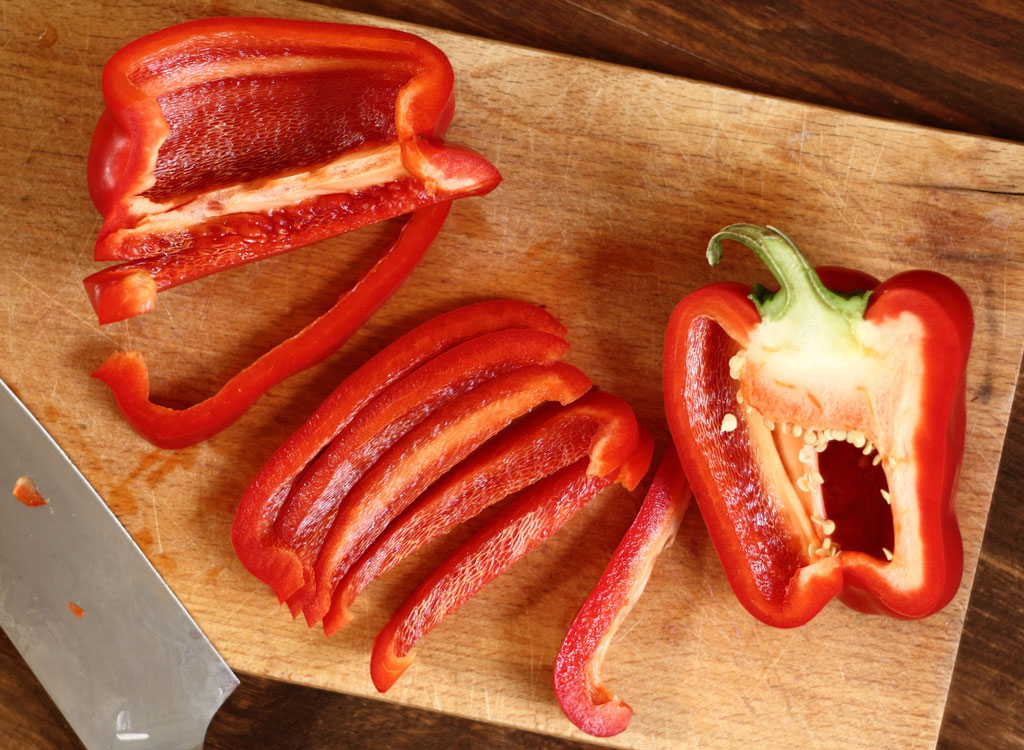
Change your mindset. You need to feel a deep appreciation for the fact that they can taste good, fill you up, make you feel great, and get you dropping weight. "Find ways to turn them into delicious comfort food and you'll be on the path to making my idea of eating 'veggies most' a reality," Muhlstein says. "If you can practice this key aspect of cognitive-behavioral therapy and reframe your mindset, weight loss will start to feel like a breeze. It doesn't come fast; it comes with practice." When you eat a ton of veggies, feel full, track it to be aware of it and see the positive change on the scale, it will reinforce your new habits and you'll own them. For more ways to lose weight with simple hacks like eating more veggies, don't miss these 9 Lazy Ways to Lose Weight.
